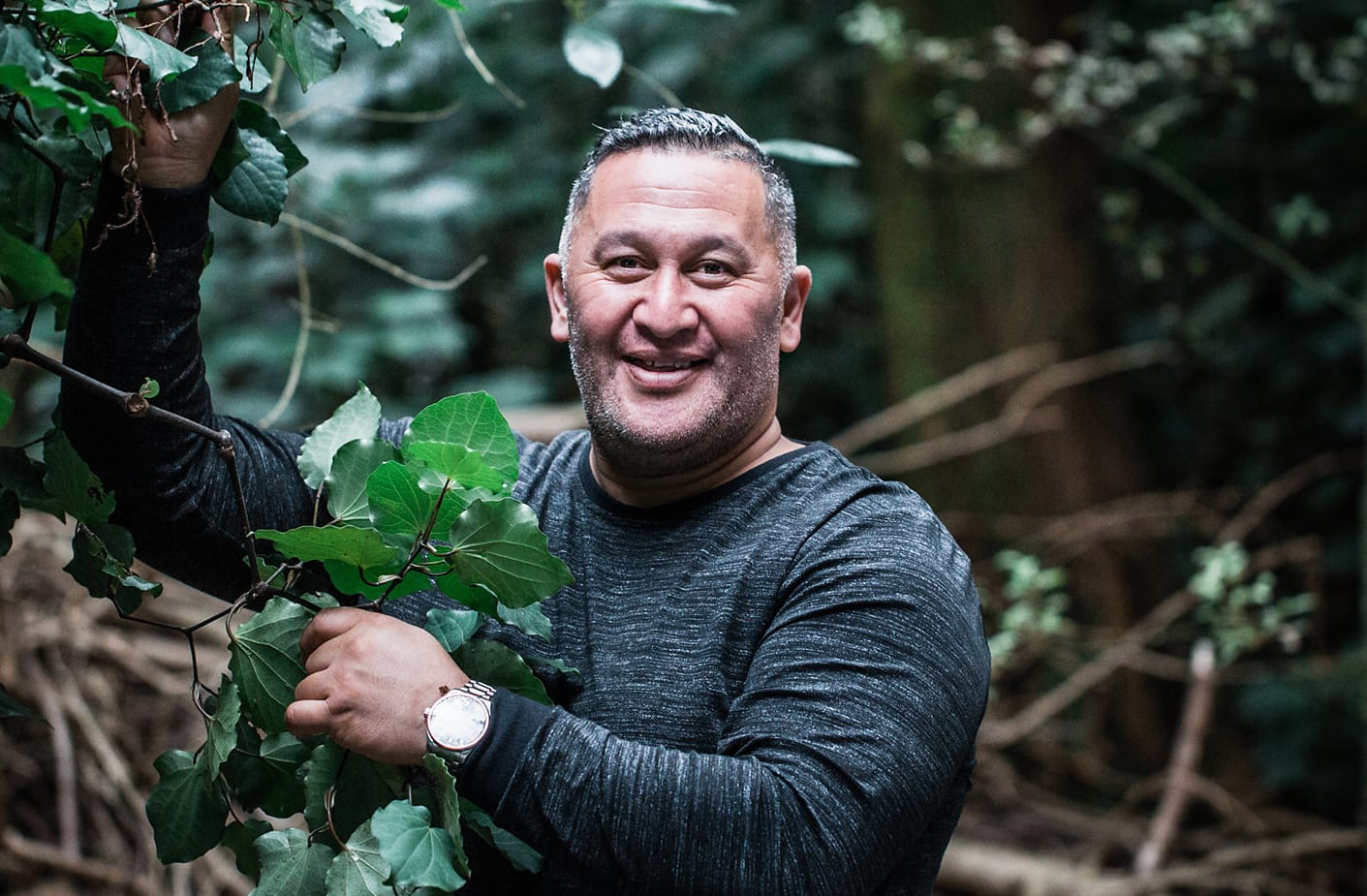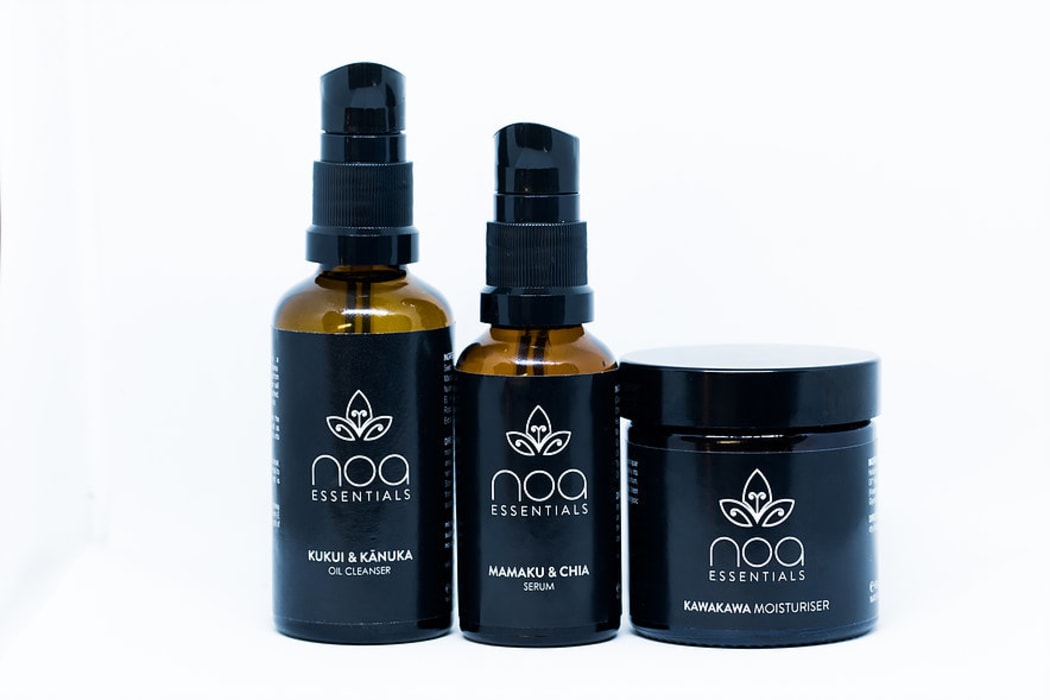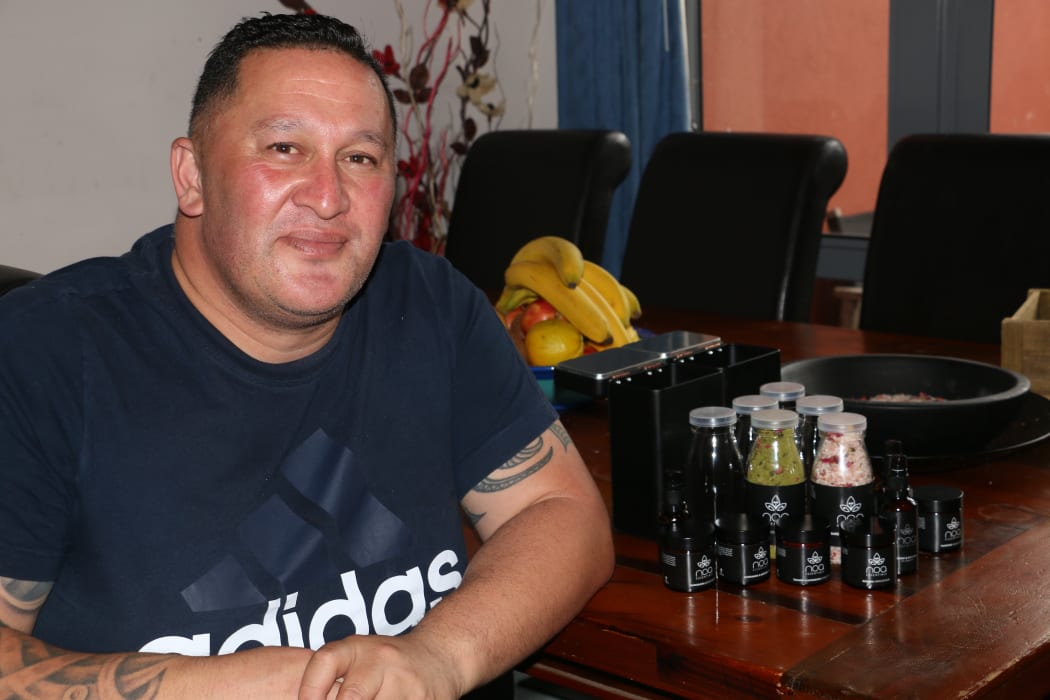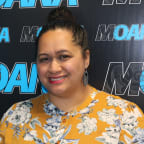
Lee Tane is a former police officer who decided to follow another pathway into Rongoā. Photo: supplied - Trina Edwards
When Lee Tane was a child, his grandmother treated his cuts and bruises with balms made from native plants.
When Lee's young son developed severe eczema, rongoā (traditional Māori medicine) healed his skin after conventional medicine had failed.
Now the former police officer and his wife Trina produce a range of rongoā-based skincare products in their whānau kitchen.
Justine Murray pays a visit to the Waikato home of NOA Essentials.
As a child, Jasiah suffered from bad eczema on his face, Lee says.
To alleviate his pain, the family turned to rongoā Māori.
"It looked like he was a burns victim.
"We tried every conventional remedy, steroid creams and we found that nothing worked… We thought about natural remedies and they worked. So we thought let's go further back and look at rongoā.”
Jasiah is now 19, and apart from the odd flare-up, his skin remains clear.
“When we talk about the attributes of the plants... I often talk about plant science [and] looking at the biochemistry, how they were used because of their properties ... There has been some research around kawakawa – the anti-inflammatory and analgesic properties. The kawakawa plant is from the same family as the kava plant in the Pacific Islands.”

Photo: supplied - Trina Edwards
Lee Tane grew up in Otorohanga and was raised by his grandmother who knew about native plants and their different uses.
Lee says she knew which leaves to pick and would make poultices or tonics to put on his and his cousins' cuts and bruises.
She made a green leaf tea with the kumarahou shrub, he recalls.
“I go back to those areas and I can’t find those places, trying to find the clean rongoā is a job in itself. There are a few places left now, finding kumarahou is very difficult.”
In 2002, Lee joined the New Zealand Police Force and was stationed in the Waikato region for 14 years.
He left to pursue his passion for science and now works as an environmental advisor for the Tainui organisation Waikato Tainui.
Lee and his partner Trina Edwards gave friends and family rongoā products over the years and were encouraged by them to create a small business.
The couple set about selling their kawakawa balm to help fund a trip to Japan for their son Jaziah.
Within a few weeks, they'd raised more money than anticipated and sold out.

Lee Tane runs NOA Essentials a business that produces balms and creams made from native plants and natural ingrediants. Photo: RNZ/Justine Murray
They first launched Rau Ora, and a year ago re-branded as NOA Essentials.
'NOA' means the binary opposite of tapu (restricted) and is also an acronym for Natural, Organic and Authentic.
Lee goes out picking the native plants with his family, and he's even taught his children about their properties and uses.
“Since we have started a small business, looking back at how those things have come full circle. [Rongoā] have that unique value today. I think people are now more aware of mainstream medicines and what chemicals they have and they want something natural. There is a shift in people looking for natural remedies.”
Lee and Trina are now looking for a larger production space for NOA Essentials, away from the whānau kitchen.
They hope to eventually export their products internationally and diversify into the beauty business.


